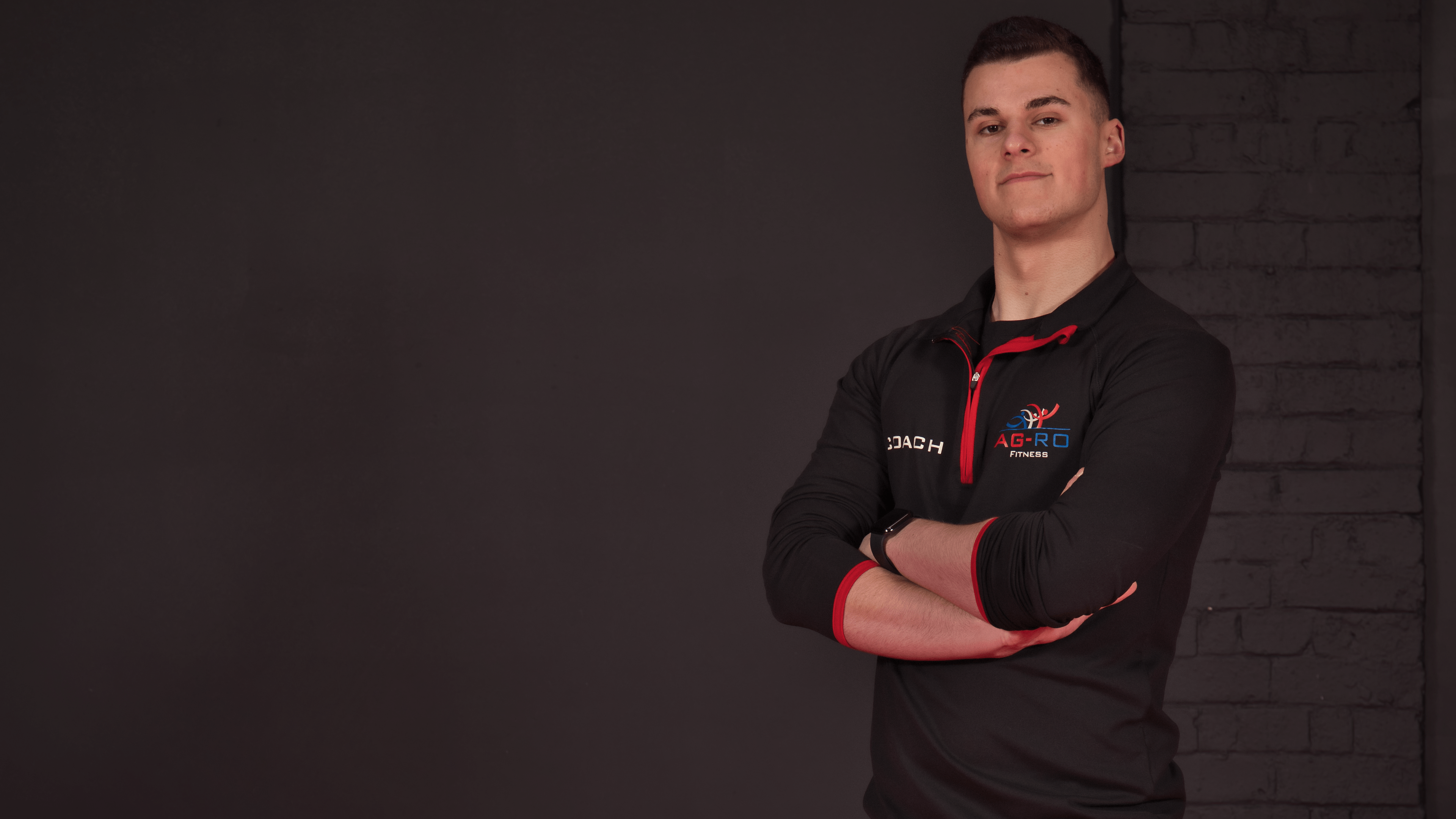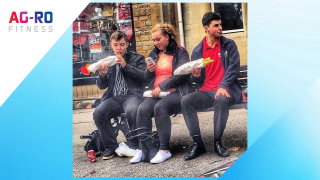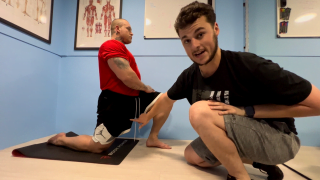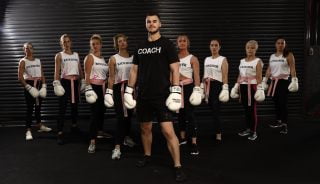I think this may expand to more than just my social media, so I believe introductions may be in order.
I’m Aaron, owner of AG-RO Fitness, a UK based, Fitness Training, Product development and Fitness education business from the Oxfordshire area. I’ve worked in the fitness industry for four years.
Through that time, I have had the pleasure of gaining incredibly diverse and exciting experiences, met a myriad of amazing people and relished in the opportunities to share my knowledge. Well then…
You wanted to know my thoughts, and I shall deliver. When most people think of autism, they begin to draw images of those with social difficulties and behavioural struggles. Perhaps displaying what we may perceive as overreactions to familiar external stimuli, such as noise.
And yes, autism is considered a learning disability somewhat. Yet, it is also a spectrum.
As such, the definition has changed over the decades and will likely continue to change in future years as we look to understand more.
There are feelings nonetheless that the spectrum is too broad and in need of condensing. Arguing that those with round the clock support needs cannot reasonably be compared with a person who could simply find loud music too distressing.
I do agree with this statement somewhat. Regardless there are often many shared challenges between those and their families regarding finding work, mental health, care and education services.
This is where I change what was originally going to be an Instagram post. Broadening this beyond what even I anticipated, into a rather extensive and in-depth look at understanding more of what makes an autistic individual tick as well as behave the way they do. But ultimately, why I believe that the health and fitness industry holds some exciting career prospects.
Here’s the big one though. I’m getting personal, a lot of what I’m going to talk about I will be relating to my own experiences.
It’s not that easy to initially see that I was diagnosed with Asperger’s Syndrome or what is now more commonly referred to as Autism Spectrum Disorder or (ASD) in 2006. Why? Because it’s not immediately apparent by my demeanour and personality. To publicly reveal this fact is a massive step for me, and, my objective is not to change people’s opinions of me. Nor do I want to have my actions and decisions being pinned on that fact. I am fundamentally no different to you than I was prior to you reading this.
However, I am in the business of helping people and, in the end, I don’t make any effort to hide it, as I have no reason to, it’s a part of who I am. As you’ll read later, it’s played a role in forming my successes.
Throughout this article, I will initially talk through what can be considered challenges to all autistic people in general. Then move to relate those to my own experiences and personality before finally linking everything back to the health and fitness industry.
Sound good? Well then, let’s get into it…
Challenges faced by Autistic People
The biggest challenge that springs to mind is that of the social interaction and communication barriers often present:
In terms of social communication Autistic people can have difficulties with the interpretation of both verbal and non-verbal communication like gestures or tone of voice. Some are unable to speak or have limited speech.
In contrast, others may have good language skills but can struggle to understand sarcasm, and intonation or express their thoughts fluidly.
I certainly have experience with the lattermost. Other challenges that present themselves can include things like taking things very literally and not understanding more abstract concepts. Or, just needing a little more time to let the cogs move when processing data or external stimuli.
On similar with social interaction, Autistic people often have difficulty ‘reading’ and processing others – recognising or understanding others’ feelings and expressing their own emotions. Challenges often found here include the fact that we can sometimes appear to be insensitive (Hence the title). Still, equally, we may seek out time alone when overloaded and not wish to seek comfort from other people or appear to behave strangely. Which is an interesting point to make when you consider how much of a social environment the fitness industry is right? I’ll explain why these can be regarded as benefits later on.
Now, with its unwritten rules and variables, the world itself is a very unpredictable and confusing place. And this effect can be amplified to autistic people which is why they often prefer to have routines and structure so that they know what is going to happen and when.
The system is essential, and they may want to travel the same way daily, wear the same clothes or eat the same food. Change to these routines can be very distressing and be a cause for anxiety. Even something such as having to adjust to significant events like widely celebrated national holidays or bigger changes like moving house or facing uncertainty at work can all be catalysts.
Autistic people may also experience an over or under-sensitivity to senses such as sounds, touch, tastes, smells, light, colours, temperatures or interestingly, pain. A prime example may be finding background music that most other people would either ignore or block out, uncomfortably loud or distracting.
This can cause anxiety or in some, even physical pain. Many prefer not to experience physical contact such as hugging due to discomfort, which can be misinterpreted as being cold and aloof. However, many simple adjustments can be made to combat these sensations or lack thereof.
And it can lead to anxiety, which can be a real difficulty for many, particularly in social situations or when faced with change. It can affect a person both psychologically and physically and impact the quality of their life.
Autistic people must learn to recognise their triggers and find coping mechanisms to help reduce their anxiety. However, there is often difficulty in identifying and regulating their emotions. When everything becomes too much, they can almost go into a sort of shutdown, and these are usually very intense and exhausting experiences.
A shutdown appears less intense to the others, which can be equally debilitating when help may be required. Shutdowns can also be a response to just being overwhelmed. (I will talk more about how I experience this later as my catalysts may not be what you initially think). Still, they may appear more passive – e.g. going quiet or ‘switching off’. And the individuals experiencing these may not necessarily have the mental power at this point to devote to figuring out how to release themselves from these situations.
My Personal Experiences
Wow! That’s a lot of info to take in, right? It’s certainly an interesting thing to have. And, for me to analyse how others see and understand how each individual is uniquely affected is equally fascinating.
Let’s go a little bit more then, into my experiences and thoughts. This is going to get personal (obviously as I’m describing my life here haha)
Quite frankly, I have learned very much to adapt and become more in tune with myself over the years, but as a child? Phew, I am indeed a different and more evolved person now. But it’s still crucial to acknowledge what made me who I am today, such as spending a decade and counting in the Royal Air Force Air Cadets. Finding an industry that can make use of my skill sets and foster them as well as a love for my three extraordinarily unique and incredibly challenging projects.
I’m going to go through each of the challenges above and how they relate to me. It should go without saying, my individuality and personality still form vast parts of how I conduct myself and who I am. Thus I’ll try not to get them too crossed over. Without going off on a tangent too much anyway, I find human psychology and behaviour fascinating.
Starting with social communication and interaction then. For the most part, this is something that I don’t struggle that much with, hence why most people I come across don’t register me as being on the spectrum. With that said it does sometimes manifest out of the blue.
Often when people talk to me, I find myself staring blankly at them if I just simply didn’t quite understand or even fully hear what they said. I’ve come to be a bit more self-aware of this. After a brief few seconds of awkward silence, it’s back in the room and carries on. The same process goes if I’m thinking about something complicated or I’m aiming to be thorough, essentially daydreaming blankly while I work it all out.
And to quote my writing here, “Challenges often found here include the fact that we can sometimes appear to be insensitive.” Oh yes, I am undoubtedly guilty of coming across this way. I just don’t have much time for those beating around the bush or hovering around me expecting me to notice them and say hello.
It is more of a personality trait really, but as much as I am here to help people. I want to do that, I naturally perceive things like “sugar coating” and dancing around subjects to be a waste of time. I am a very structured, logical and pragmatic individual. As such, I will sometimes be very literal and abrupt with people even if I don’t mean to be. If you want me to do something, fantastic, but just tell me what you’d like, and I will get on with it.
Alongside being a logical and pragmatic person. Order, structure, establishment, and integrity are principles I hold in very high regard. I honestly implode with chaos and the blatant disregard for set procedure, which makes it very difficult to be amicable with those that break tenents.
To me, things are set the way they are for a reason, and they should be followed, this is not without limit; however and we are only human. I used to work in the customer service industry, and for the most part, it was gratifying. Still, these traits did get me in trouble a few times as I just couldn’t process nor understand why people couldn’t follow the most basic of tasks.
This is still very prevalent in me even today. However, I’ve learned over the years to control impulses to call people out which unintentionally come across as sounding very aggressive or rude. But you’ll still often catch me making unintended facial expressions like the one attached to this post when I see things that just confuse me haha.
Besides, if there is one thing I probably struggle with most, it is the expression of my thoughts and feelings in a fluid manner. Even writing this, my mind is darting between all these things I want to talk about. If I were to do that this would become an anthology series of infinite length.
Let’s take my fitness class instruction as the next example of expression. If you’ve ever seen me talk for more than 30 seconds, you’ll probably notice how much I use my hands and body gestures to convey a lot more emotion than my voice might.
Amplify that in my Spin classes for example, if you know you know, eh? Being so energised by the music chosen, the atmosphere I cultivate and to be in there leading people to better themselves. It’s such a real escape for me, as with most things I take pride in.
The level of raw emotion and effort that goes into my work, even the simple act of writing up a playlist is far more than the final result may let on. But, throw in some natural showmanship when teaching, and it yields impressive results. Not that anyone can hear me that well over the tunes, but I like to sing along with the tracks I put into all my classes, not limited to just indoor cycling.
Has anyone noticed the intonation of my voice when doing that? Probably not, sometimes I’m singing along because it’s a swish track that I like, but, a lot of the tracks I use will cause me to put a specific emphasis on my voice. Why? Because in reality, I’m directing those lyrics at everyone there with me at that moment, conveying how I feel or messages I want to share with you by using the music. I always said to people, that I have three stages to music, hearing, listening and feeling, and the latter is something that still resonates with me.
However, because I’m so in-tune (pun entirely intended) to those experiences, I find it incredibly distracting and uncomfortable when it doesn’t sound “right”. The difference between speaker systems is the most prominent example. If it doesn’t sound as I perceive it should or is supposed to, I find myself believing that what was delivered wasn’t good enough. Even if no one else feels the same.
So there are some drawbacks. But it’s one of the things that makes me tick and why Revolution Indoor Cycling, one of my brands and products is so unique and diverse. From a heightened sense perspective, I can almost see what I hear.
I’m not superhuman by any means. But for some autistic people, relating to what was mentioned earlier about an over-or under-sensitivity to stimuli, this can spur on some incredible levels of creativity. Without tooting my own horn, I am an incredibly creative person. The challenge that most will probably encounter, as I do regarding this is not knowing how to express what’s in our minds in a way that is feasible and understandable.
And this brings me to what I feel is my biggest challenge to overcome in terms of expression. What I would consider one of the biggest catalysts to when I want to shut down a bit. The background and behind the scenes work, I do to bring the services and products, and my ideas to life are profound. The biggest struggle is when what I create and do is externally reacted to in mediocre or uninspiring ways. It causes feelings of invalidation to my intelligence, skills and effort. Such is the case with Revolution Indoor Cycling.
I am so incredibly proud to call it the only product of its kind globally. But when all I get when I ask for feedback is just “it was good” or “thanks.” I struggle to process why people aren’t as excited or pleased to have such a unique experience, or even to acknowledge the work put into it. Of course, you can’t force people to interact, nor would I expect it to be everyone’s liking. However, it’s still something I work to overcome daily in most aspects of my life.
I’ve spoken far too much about group cycling and fitness classes already, so let’s move to chat about anxiety. I’m your classic over analyser, which is excellent for finding the finer details in things. But, the balance between that and starting to see and think about things that aren’t there is usually where I’ll falter. And I believe that it comes down to control and comfort.
Where I feel in control of situations, and there aren’t many extraneous variables is when I’m most comfortable. An example is, training a client or taking a class, I’m confident in my knowledge and skills to deliver these without a second thought, even with new people. But if we consider an assessment of a new skill or anything where either I begin to self doubt my abilities, no matter how solid they may be. Or, the structure of how things are planned, is chaotic then we start the overthinking and over analysing phase. Because, and I believe this is indicative of anyone. We want to succeed, right? For an autistic individual, this can be dialled up to eleven.
With myself, it’s physically exhausting to have to feel these kinds of things and get stuck in a loop. Consistently, I often prove myself and my worries wrong when I do have successes. But I still feel it’s a challenge in and of itself at that point to acknowledge your mind feeling like it lied to you. With consistent exposure to these uncomfortable experiences, I’ve learned more to put these post thoughts aside and go back to my routines and structure and what works for me.
I could continue to talk about every thought and feeling I’ve experienced, but that’s because I’m passionate about it, my work and the people I care about. I realise I may sound incredibly narcissistic, but I thoroughly enjoy sharing my ideas and creative thought processes.
But, enough about me, let’s answer the question we came for shall we?
Why do I feel there are career prospects in the Health and Fitness Industry for Autistic individuals?
I mean you may have picked up already from the way I’ve been talking so far.
Here’s the kicker. Despite the challenges faced…
Many autistic people have intense, highly-focused and analysed interests, they can change over time or be lifelong. Autistic people can become experts and specialists in their particular interests and often like to share their knowledge.
Like all people, autistic people gain vast amounts of happiness from pursuing their interests and see them as fundamental to their wellbeing. Being highly focused like this helps many do well academically and in the workplace. However, we need to be mindful that they can become so engrossed that they neglect other aspects of their lives, so finding that balance is key to success.
What makes a good coach, trainer or industry professional?
(Referred to as coach)
A good Coach is someone positive, enthusiastic, supportive, trusting, focused, goal-oriented, knowledgeable, analytic, observant, inspiring, respectful, patient and embodies integrity. They must be able to have an in-depth understanding of the fundamental skills, foundations and practices of their chosen subject. Be able to plan and provide a simple, structured environment for clients to succeed.
To immerse oneself in the seeking and application of knowledge, whilst having creative and visionary qualities. While a good coach would need to know a great deal about their discipline, we must continue to learn and develop new skills.
Staying up-to-date and informed of novel research, training, and everything in between that supports the coach’s ability to provide world-class service. Not being afraid to seek out help and mentorship from other coaches and trainers and industry professionals is a sign of a great leader as well as studying regular Continued Professional Development (CPD). As these come in a range of subjects that may be of interest to an autistic person such as sports psychology, nutrition and exercise physiology, to name a few. It is readily accessible for anyone who wants to grow and improve. Made even more attainable with the use of advanced learner loans and special accommodations being more readily available.
Obtaining knowledge is essential, but having the confidence to share and seek others’ opinions, especially with those from outside of your specialism, is a crucial quality. Being felicitous to try new things and ideas in the pursuit of improving performance. The best coaches clearly understand we are here to educate.
For an autistic person, just having the opportunity to share their knowledge and passion is already a fantastic opportunity. When fostered in the right way, communication barriers can be broken down. A successful coach is a motivator with a raw enthusiasm for the subject, and the ability to motivate and inspire is part of the formula for success. Fun and enjoyment are also the cornerstones to successful coaching and a model that I can vouch for in my business.
Analyzing and understanding the more intricate principles and scientific foundations is something that an autistic person can genuinely shine at. By equipping them with these skills makes them able to be more aware of individual differences in people: individualising training styles, systems and practices to the specified client is vital to successful coaching and personal development.
Understanding that every person is different, and will have different ways of receiving information is key to good coaching. For autistic people, this provides a unique environment to explore their abilities with communication. After all, the effective coach is one who exudes credibility, competence, respect and authority. Is disciplined, strong in character and integrity and leads by example with a very high work ethic.
A good coach will adhere to the same rules they expect others to follow. Combine this with how many autistic people desire structure, regulations and order this can make for an advantageous combination to share relevant and authentic information alongside best practices. However, we still need to be open to ideas, and in my experience. I only really come to gain a better understanding and respect for others’ ideas concerning new methods when I have been explained the science behind these theories. This enables me to draw points A to B clearly and concisely.
In the end, the best coaches are in the profession because they love it. Besides, being firmly committed to the industry, the best display a clear commitment to looking out for the best interest of their clients, supporters and the reputation of the industry.
Summary and Final Thoughts… For now…
To summarise, the purpose of this article is genuinely to highlight the incredible prospects that can await Autistic people in this fantastic and incredibly vast science that is the Health and Fitness Industry.
From becoming a personal trainer to an exercise to music instructor or rehab specialist, or even working more behind the scenes in anatomy, kinesiology and physiology research. Because it’s a science as well, there is plenty of room for creative inspiration and thoughts to flow with ample opportunity to act on and explore them.
Ultimately I believe it still comes down to how we foster and nurture the interests of the individual.
I pride myself on my work and am incredibly proud of what I have achieved and how I have personally developed over the years. It wouldn’t be without trials and tribulations. Still, those that have been crucial in my support both past, present and future cannot go unacknowledged.
To be able to offer out my expertise and knowledge to more people as I begin to broaden my services further in training and assessing fitness courses. Being able to teach and train the next generations of fitness professionals is undoubtedly an exciting prospect and one I cherish.
I certainly hope that all readers of this can take something positive and inspiring from this and that my thoughtful ramblings made some semblance of sense. There is so so much more I could add and want to talk about and maybe I will in the future. For now, I will leave you with what’s written.
Please feel free to reach out and contact me with any questions and feedback, it would be great to hear your thoughts. And I am delighted and willing to answer questions. I hope this is also useful to families with autistic loved ones that may have needed help finding work and opportunities and hadn’t considered the fitness industry.
Finally, I wish to extend a personal thank you to friends and family, mentors and supporters, and everyone in between I thank all of you for taking the time to read this article. It took me about fifteen hours across a few days to write, and honestly, I think I could still double it with content haha.
Wishing you every success, together we achieve great results only.



